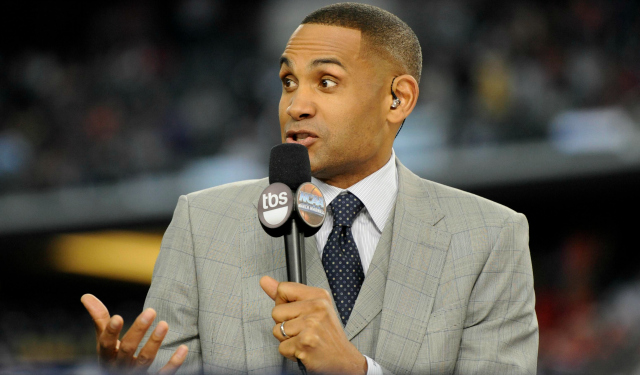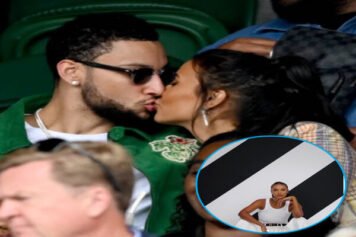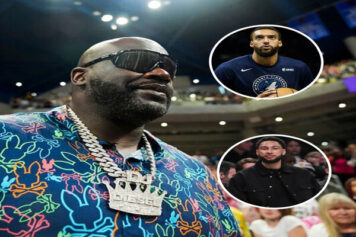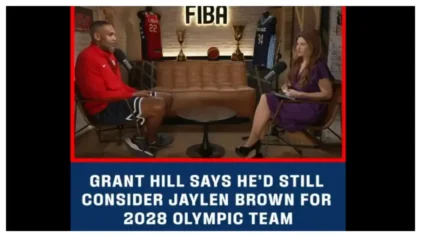The legend of Grant Hill is one that will reign in the halls of basketball immortality. Hill was a part of a Duke University basketball team that became the first Division I program to win back-to-back NCAA National Championships since the UCLA Bruins did so back in 1973, when Hill was one year old.
The NBA promise of greatness that was so swiftly taken away, the dignity and pride to work himself into a very serviceable player for the remainder of his career, and just being an all-around cool guy make Hill a top-five answer for the trivia question of Who is your favorite college basketball player of the 90s?
Hill was named a member of CBS’ lead college basketball broadcasting team for the NCAA Tournament in 2015, joining Jim Nantz and Bill Raftery.
Last week, The Shadow League caught up with Grant Hill at the CBS Sports March Madness Media Day to talk about a phenomenon unlike anything else in American sports that will take center stage over the next few weeks.
The Shadow League: What do you think makes the NCAA basketball tournament the most popular sporting event in America?
Grant Hill: I just think that there is something endearing about the spirit of the NCAA tournament. You have the one-and-done format, you also have the spirit of the college fan base and the passion that fans have for their respective schools. I think its pure and more real than your professional teams. Then its just the upset storylines. Its complete madness.
I think its the most exciting sporting event on television. For me, its just tremendous honor for me to be a part of. I started off as a kid as a fan, was fortunate enough to be a player, Im a fan now but also have a responsibility to broadcast it and call the game and hopefully help create a wonderful memory not only for the player but for the fans at home.

(Photo Credit: CBS Sports)
TSL: In the past, whenever the NBA needed an influx of philosophy or style, the college game was readily pilfered. Former Princeton University head coach Pete Carrill helped revolutionize the game by teaching coaches how to implement his motion offense. Some teams even utilized the defensive philosophies of Jim Boeheim, who is an ardent advocate of zoning it up. However, many college teams are reversing that trend by borrowing heavily from the NBA in terms of offensive style. Villanova and Oklahoma are the most noticeable.
GH: I think the college game is heavily influenced by the pro game. Theres a lot of pick-and-roll basketball going on. Its very much a point guard dominant, guard dominant game. These guys look up to the NBA players, they emulate them and admire. You see the style of play, the freedom of movement in terms of the rules, which is similar to what the NBA did a few years ago.
I feel like back in the day, the college game had its style and the pro game had its own and now you see sort of a merging of the two styles and theyre very similar om terms of what you see a talent level, the style and the philosophies on offense and defense. So, yeah, its one of the things I like about college basketball.
TSL: Although LSU forward Ben Simmons is ineligible to win the Wooden Award due to academic concerns, he certainly has the talent to do so. Despite averaging 19 points, 12 rebounds and five assists per game, many claim that he has no fire because of his reserved demeanor. Being someone who also appeared serene on the court, what are your thoughts on that assessment of him?
GH: I think the challenge he has, and to a lesser degree I had, is the expectations. But I didnt have all that pressure and scrutiny as a freshman. I had other good players around me. There wasnt that much expected from me to come in and carry the load as an 18 year old. But sometimes when you are smooth and have a smooth demeanor it looks easy. People can get that confused. We all have different styles; we all have different personalities.
The thing Ive learned is you have to be true to who you are and we have to recognize and appreciate everyones style. I think hes a great player, I think his team is not as good as we thought they would be. I think thats a product of the parity were seeing college basketball, which is a little bit of a departure from what weve seen in the past. Hes a great player. I think when youre a great player and youre playing to the magnitude that hes playing you get a lot of scrutiny. Theres always going to be some positives and negatives. Hes a great talent who has a great career in front of him.
TSL: Every time I turn around a former Duke player is complaining about being miscast as villains and dirty players. Most recently J.J. Redick spoke out about this. What are your thoughts?
GH: You kind of felt like last year with that documentary we could kind of put it all to rest, but its like that story that doesnt go away. You know, I do think theres some truth to it. Couple things; Christian (Laettner) embraced that role. He thrived in that kind of role. He liked playing that role, kind of like a 1980’s wrestler. He loved that.
As far as Grayson (Allen), I dont think Graysons that kind of kid. Yeah, he made a boneheaded play with the tripping incident. He has had to pay for that with the punishment, but hes not a bad guy. Hes just a different personality.
I think one of the things thats so sacred with the college game, particular the tournament, these are kids. When youre dealing with pros you can be a little harsher with criticism. I think its really about creating those moments for them and allowing them, good, bad or indifferent, to just enjoy this experience. But you hate to see a young man who really isnt like that to be branded like this based upon things that may have happened in the past.



